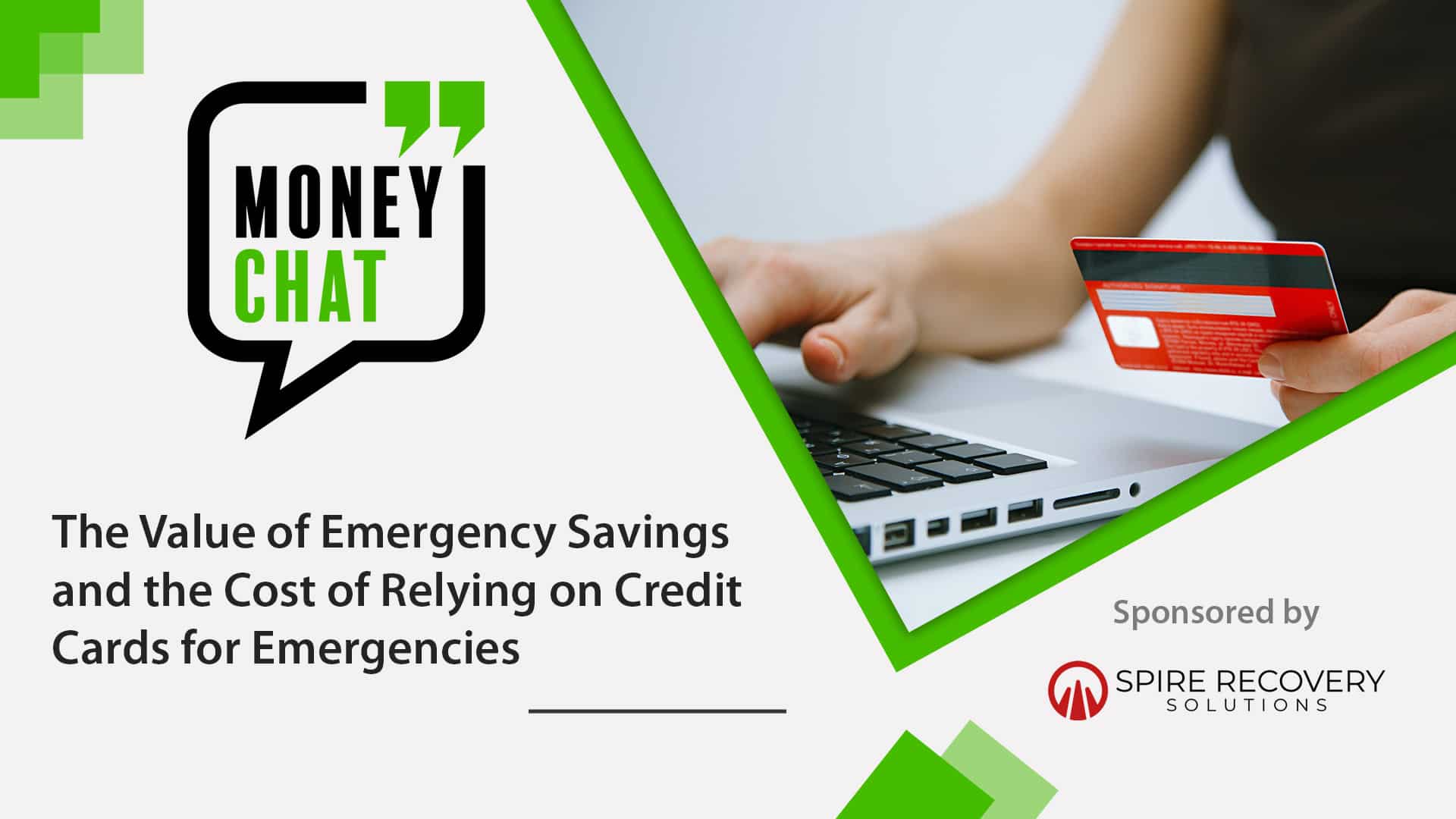
Tips for Building Credit at a Young Age
Imagine standing at the precipice of adulthood, where the horizon is painted with dreams of financial independence, eventual home ownership, perhaps even entrepreneurial ventures, and a stable, secure life. To reach this horizon, there’s a bridge that needs to be crossed—the bridge of credit.
In today’s financial landscape, credit is not just a tool; it’s the lifeline that fuels dreams and ambitions. For young adults, understanding and building credit is like acquiring a golden key to the treasure chest of opportunities. But where to start? Is building credit an art or a science, or a bit of both?
In this Money Chat, our goal is to help you lay the foundation for a stable financial future. We’ll explore strategic steps young people can take to establish a strong credit profile.
What is a credit score?
A credit score is a three-digit number, typically ranging between 300 and 850, which tells lenders your financial trustworthiness. It’s like a financial report card lenders use to evaluate the risk involved in granting you credit. This score is calculated based on many factors drawn from your credit history, and each part holds a different weight.
The key parts of a credit score include:
- Payment history (35%): A record of whether you’ve regularly made payments on time.
- Credit use (30%): The ratio of your total credit card balances to total credit limits. Lower is better.
- Length of credit history (15%): The age of your oldest credit account, the average age of all your accounts, and a look at the general timeline of your credit history.
- Credit mix (10%): The diversity of credit accounts you possess, such as credit cards, student loans, and other lines of credit.
- New credit (10%): The number of recently opened credit accounts and hard inquiries made by lenders when you apply for credit.
Essentially, a credit score is a reflection of your financial habits and history, combined into a single number. It’s important to understand and effectively manage the factors that go into your credit score. A strong credit score opens doors to favorable interest rates and loan terms, playing a big role in achieving financial goals and stability.
Why does your credit score matter?
A high credit score indicates financial responsibility and reliability. Here’s how it can impact your life:
- Lower interest rates on loans: Favorable credit scores qualify for lower interest rates on mortgages, auto loans, and personal loans.
- Easier approval for rentals: Landlords often check credit scores, and a good score means you’re likely to be a reliable tenant.
- Better insurance rates: Some insurance companies use credit scores to set premiums. A high score could lower insurance costs.
- Employment opportunities: Certain jobs, especially in finance, may require a credit check.
How can you get a credit card?
Get a student credit card
Before applying for a student credit card, make sure you’re eligible, which may include proof of enrollment in a college or university. It is important to compare options. Research various credit cards and look for ones with lower interest rates, no annual fees, and student-friendly rewards. Online comparison tools are helpful to weigh your options.
Additionally, if you have an existing bank account, check if your bank offers a student credit card, as they might be more likely to approve your application. In cases where you may not qualify on your own, consider asking a parent or guardian to cosign, but remember the cosigner will have to pay your credit card bills if you cannot. (Be very cautious about cosigning or involving a cosigner for any type of credit account.)
Become an Authorized User
To become an authorized user, a family member can add you to their credit card account and you’ll get a credit card with your name. Make sure this person has a history of responsible credit usage, as their actions will now have a direct impact on your credit score.
Establish clear boundaries and understandings regarding the credit card usage before getting the new card, such as repayments and spending limits. You should also verify with the credit card issuer that they report authorized user activity to the credit bureaus, which is essential to build your credit history.
How can you responsibly build credit?
Pay your bills on time
Payment history makes up 35% of a credit score. Set up automatic payments or calendar reminders to make sure you don’t miss any due dates. Credit reports show late payments as well as missed payments. Lenders don’t accept excuses, so if you miss a due date it will be recorded and likely reported to the credit bureaus.
Late payments may be given a short window called a “grace period” of a few days but not always; check with your lender if you need to confirm. But ideally, you should do everything possible to handle credit responsibly, which means always pay on time and don’t borrow more than you can repay in a timely manner.
(If you have a true hardship or reason for delayed payment, It’s always better to reach out to your creditor as soon as possible rather than wait and experience consequences for delinquency and lack of communication.)
Keep your credit usage low
Credit usage means how much balance you have on your credit card compared to your credit limit. A low percentage, usually below 30%, demonstrates responsible credit management and can increase your credit score over time.
What are different credit options?
Consider a secured credit card
If you have limited credit history, a secured credit card is an option. These cards require a security deposit, which usually serves as the credit limit. Responsible usage can eventually lead to eligibility for an unsecured card. This can be a good “practice card,” but the same credit rules still apply.
Take out a small installment loan
If taking out a loan is an option, make sure it is a manageable amount. Repaying loans on time can have a positive impact on credit scores. This demonstrates you can manage different types of credit. Loans usually require you to pay interest, however, so carefully consider this option. You can put the money into a low-risk investment to help off-set the loan interest rate, but be sure the investment isn’t locked so you can pay back the loan on time.
How can you monitor your credit report?
Keeping an eagle eye on your credit report is important to maintain financial health. You can get a credit monitoring service to help track changes and send alerts for new activities. Monitoring your credit report is useful to prevent potential fraud.
Don’t just rely on these services. Take time to personally review your credit report. You can get a free credit report each year from each of the three major credit bureaus – Equifax, Experian, and TransUnion. Make sure you understand the report, such as payment history and credit usage, so you know how different actions influence your credit score.
If you identify inaccuracies or discrepancies, take action quickly. File a dispute with the credit bureau, and include supporting documents. For suspicious activities hinting at identity theft, place a fraud alert on your credit reports and notify the authorities.
The takeaway: Be patient and diligent
Building a strong credit profile at a young age is an investment in the future. By understanding the importance of credit scores, securing and responsibly using credit cards, diversifying credit, and diligently monitoring credit reports, you can build a strong financial foundation. Making these habits early in life can lead to many financial opportunities and advantages.
Free Resources
There are several free resources available for individuals who are looking to learn more about building credit and managing their finances effectively. Here are some notable options:
- AnnualCreditReport.com: This is the official site where you can get free credit reports from the three major credit bureaus. Understanding your credit report is essential in learning how to build and maintain good credit.
- Consumer Financial Protection Bureau (CFPB): The CFPB offers tons of information on credit cards, credit scores, and other personal finance topics. Their website contains guides, answers to common questions, and tools to help consumers make informed financial decisions.
- NerdWallet: A personal finance website, NerdWallet offers free tools and information on credit cards, bank accounts, and credit scores. They also provide articles and advice on building credit.
- Credit Karma: With free credit scores and reports, Credit Karma offers valuable information and tools to understand and improve your credit. Their website also contains articles and advice on credit cards and loans.
- Local Libraries and Community Centers: Often overlooked, local libraries and community centers sometimes offer workshops and seminars on personal finance and credit.
Have an idea for a Money Chat topic?
We want to hear from you! If you have a suggestion for a future Money Chat topic, please email us at [email protected].
The information contained in this article is meant to serve as general guidance for consumers and not meant to serve as comprehensive financial advice. For questions about your individual circumstance, finances, or accounts, please contact your creditor(s) and/or financial advisor directly.
Thank you to our sponsor, Landmark Strategy Group, LLC
Landmark Strategy Group, LLC is a nationally licensed and bonded receivables management firm located in West Seneca, NY that specializes in passively purchasing non-performing receivables portfolios. Mark Lesinski and the rest of Landmark’s executive team have a combined total of 60+ years of experience in the ARM industry and have developed efficient and compliant processes that deliver a quick valuation, streamlined purchase, and exceptional customer service after the sale.









